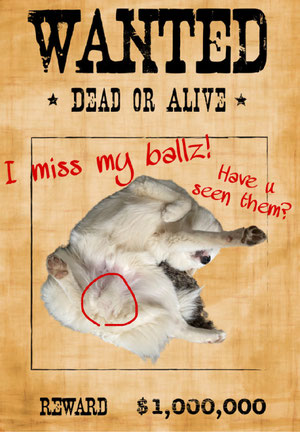Many dog owners are bothered by the male dog's riding, which sometimes begins in puppyhood. This can have two reasons:
(1.) It is sexual in nature. The situation here is that the bitch can usually defend herself quite well against the intrusive male dog. This can also look a bit more violent, but it doesn't matter to the male dog, a decent male dog can handle such a "slap" quite well. If he becomes aggressive towards a neutered male dog, the neutered dog will also defend himself against it. By the way, the reason why intact male dogs are so fond of bothering neutered dogs is because neutered male dogs “smell” to another dog like a bitch just before or at the beginning of pre-estrus (this is the phase in which female dogs bleed).
Of course, you have to show your male dog the boundaries and sometimes grab him by the collar and pull
him away from the object of desire if he doesn't stop. In the case of very energetic male dogs, this sometimes requires a lot of
assertiveness to sort it out, but is absolutely no reason for castration! In addition, if the person you love is a neutered male
dog, you shouldn't be afraid to tell the animal's owners that they actually caused the riding themselves by castrating their dog. Because the intact male behaves completely normally!
(2.) Another reason for such behavior may be that it is an act of dominance. Castration doesn't change that at all, because even in the world of castrations there is a hierarchy that needs to be clarified. A pubescent young Spitz is usually very self-confident and, especially at this age, it may well be that he would like to prove himself. Here, too, it is important to take action and stop the gossiping.






